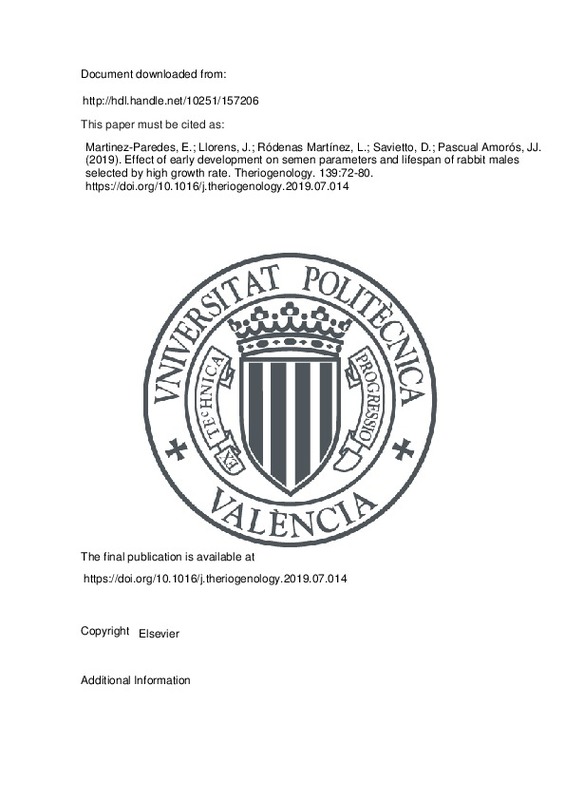JavaScript is disabled for your browser. Some features of this site may not work without it.
Buscar en RiuNet
Listar
Mi cuenta
Estadísticas
Ayuda RiuNet
Admin. UPV
Effect of early development on semen parameters and lifespan of rabbit males selected by high growth rate
Mostrar el registro completo del ítem
Martinez-Paredes, E.; Llorens, J.; Ródenas Martínez, L.; Savietto, D.; Pascual Amorós, JJ. (2019). Effect of early development on semen parameters and lifespan of rabbit males selected by high growth rate. Theriogenology. 139:72-80. https://doi.org/10.1016/j.theriogenology.2019.07.014
Por favor, use este identificador para citar o enlazar este ítem: http://hdl.handle.net/10251/157206
Ficheros en el ítem
Metadatos del ítem
| Título: | Effect of early development on semen parameters and lifespan of rabbit males selected by high growth rate | |
| Autor: | Llorens, Jorge Savietto, Davi | |
| Entidad UPV: |
|
|
| Fecha difusión: |
|
|
| Resumen: |
[EN] Life history theory suggests that different body development dynamics may influence survival and future reproductive performance of organisms. The present work studied how these dynamics could influence seminal traits ...[+]
|
|
| Palabras clave: |
|
|
| Derechos de uso: | Reconocimiento - No comercial - Sin obra derivada (by-nc-nd) | |
| Fuente: |
|
|
| DOI: |
|
|
| Editorial: |
|
|
| Versión del editor: | https://doi.org/10.1016/j.theriogenology.2019.07.014 | |
| Código del Proyecto: |
|
|
| Agradecimientos: |
The authors would like to thank Jose Manuel Arias, owner of the selection centre El Adil Redondo S.L., (Carrizo de la Ribera, Leon, Spain), and his team for their help, as without their collaboration this work could not ...[+]
|
|
| Tipo: |
|







![[Cerrado]](/themes/UPV/images/candado.png)


